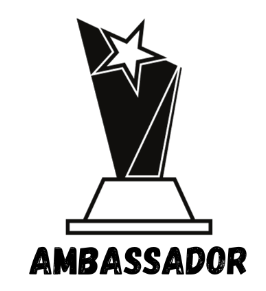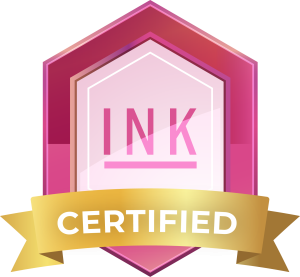
When someone starts telling a story, people lean in and listen. As part of survival, we listen to them automatically. Today, storytelling is essential to your business. But emotional triggers are the key.
It’s how we humanize the brand and help people connect with it. Without stories, you have a nameless face that seems only concerned with a transaction. It doesn’t care or engage with customers. Through stories, the viewers get to know the business and build KLT (know, like, trust). Without knowing, liking, and trusting, it’s hard to get sales.
People want to know a business's origin, what it means to them as a customer, and what that business product or service the business offers. How can it help improve their lives?
What’s your favorite brand story? Why? How does it tie you to the brand?
Table of Contents
Budweiser is one of my favorite brand stories, though I rarely drink beer. Instead, it’s those majestic Clydesdales that grabbed my heart and loyalty.
When visiting London, August Bush Jr. saw a team of Clydesdales pulling a beer wagon. Stunned by the site, he was inspired. He saw the potential to use them in marketing and branding. Power, majesty, and a world of horse lovers. And in the early 1930s, the memories of horse-drawn vehicles were alive and well. So Bush Jr. determined to have his own horses.
In 1933 Prohibition was repealed. Bush Jr. gave his father a gift of Clydesdales to celebrate. The horses quickly became a brand symbol focusing on quality and craftsmanship.
The horses are still an essential part of Budweiser's identity. They are bred and trained in Missouri and travel worldwide. As a result, the Super Bowl advertisements featuring them are memorable. Here are the most famous ten. But I can’t watch the 911 tribute without tears.
The pandemic accelerated changes in expectations. Consumers don’t want to interact with faceless transactional brands. We want to feel something in common with the business. Apple fans like to think different. Women who use L’Oreal Paris identify with because you’re worth it. While Nike fans, just do it. It’s not just these tag lines but the marketing that supports them that helps us connect with these brands.
They all have in common how they engage with us and are transparent. They tell simple short stories that reinforce our connections with them and make us feel a part of something by purchasing them.
There is an essential secret in telling stories, and I’m so glad one of my business coaches drilled it into us. You have to tell the story, not tell about the story. An excellent example I saw was a post where the author asked AI to write about what it was like to hold his baby for the first time. And then, the author wrote about his own experience. The difference in emotion and connection was HUGE. One was bland and non-experiential, and the other grabbed your heart.
There is one tip I would share about your business stories - keep AI from writing them. Use AI as a start, but don’t use them as generated. They will be about the story you are telling and will miss the mark in connecting with your audience. AI can't create or think like humans. And search engines are programmed to spot the tells.
A lot is riding on your stories. So if you don’t have the heart and bones of a storyteller, hire one to assist you with these. Don’t depend on AI. Readers must feel your emotion, experience, expertise, authenticity, and vulnerability. The stories need to be simple and focus on why your brand exists. Those emotional triggers are key to success.
Your audience wants to know how you came to be. Did you come from trauma? Did the idea come from financial trauma? Was it a set of circumstances? When e-commerce and Amazon came to be - that was a disruptive set of circumstances.
Uber is a business born of trauma. The founders found themselves stuck in a Paris rainstorm with lots of luggage—and no transportation. In solving their situation, they created a business that gave more options and made getting a ride easier.
Some origins come from destiny.
College dropouts Steve Jobs and Steve Wozniak wanted to make computers small enough for people to have in their homes or office. It was a novel concept and their vision when they founded Apple Computers, Inc, in 1976. By the time they launched production the following year, Steve Jobs was already on his way to fulfilling his destiny - one that changed our whole culture along with it. It was a rags-to-riches story, two guys starting a business in a garage. People identified with that struggle and connected with it. They engaged with the dream and couldn’t wait to buy the product.
Many brands are the result of chance. Something happens that inspires their creation.
For example, Blake Mycoskie was on vacation in Argentina. At a local cafe, he had a chance meeting with a charity group collecting shoes for needy children. Children who spent their lives barefoot. Blake’s desire to make a difference led him to create Toms shoes with his unique buy-one-and-give-one business model.
The connection between the origin and the product is the customer. We tell a story that feels personal to the brand. One that the customer sees himself in the hero’s problem or struggle. A hero with fears and concerns. To be a real person, he has strengths and weaknesses. We’re all flawed, so your hero needs to be, also.
The storyline should follow the classical hero’s journey. Problems, conflict, and challenges before they find solutions. We must use empathy and show our hero overcoming his fears to find the answers he needs.
Every superhero follows this plotline, from Frodo in Lord of the Rings to Luke Skywalker in Star Wars. Even children’s stories like The Three Little Pigs, Red Riding Hood, and The Little Engine That Could share elements of challenges they overcome.
For your business customer story, it’s often the business owner finding a solution to their problem. It’s written so the reader sees themselves in the hero’s shoes as the story unfolds. They are in the hero’s situation, facing the same problem, pain, sleeplessness, or business struggle. They identify with and feel the hero’s pain as their own.
Consider the Uber founder’s story. They arrive in Paris. Tons of luggage. Not a cab in sight, and pouring rain. Anyone caught in the rain without transportation will identify and recall their own experience.
Identifying and seeing themselves overcoming a problem is the purpose and value of the customer story.
Many times you can link the product story to the origin story. The goal of the origin ties directly to the product. For example, Apple makes and sells computers that we can now have at home and in our pockets or hand.
Mycoskie’s experience and desire to make a difference led him to create Toms’ product, shoes. And in marketing Toms shoes, they always include the buy one give one part. Customers get a psychological reward for participating and helping needy kids get shoes. They are vicariously contributing to the better good of others.
It’s time to tell your three stories. Do you already have brand stories written? How well do they engage the listener? Maybe it’s time to rewrite them.
Need a story in place? When things are tough, you need to help and support your audience. Help them understand you and your brand with real human stories that build Know, Like, Trust, and the willingness to buy.
If you need a professional storyteller, message me. I can help. [email protected].
You may also find this post on AI of interest.
And here is an article on what branding really is.
 Judith Culp Pearson receives three top honors
Judith Culp Pearson receives three top honors
at the annual Society of Permanent Cosmetic Professionals in
Ft. Worth, Texas - October 7-9, 2023




